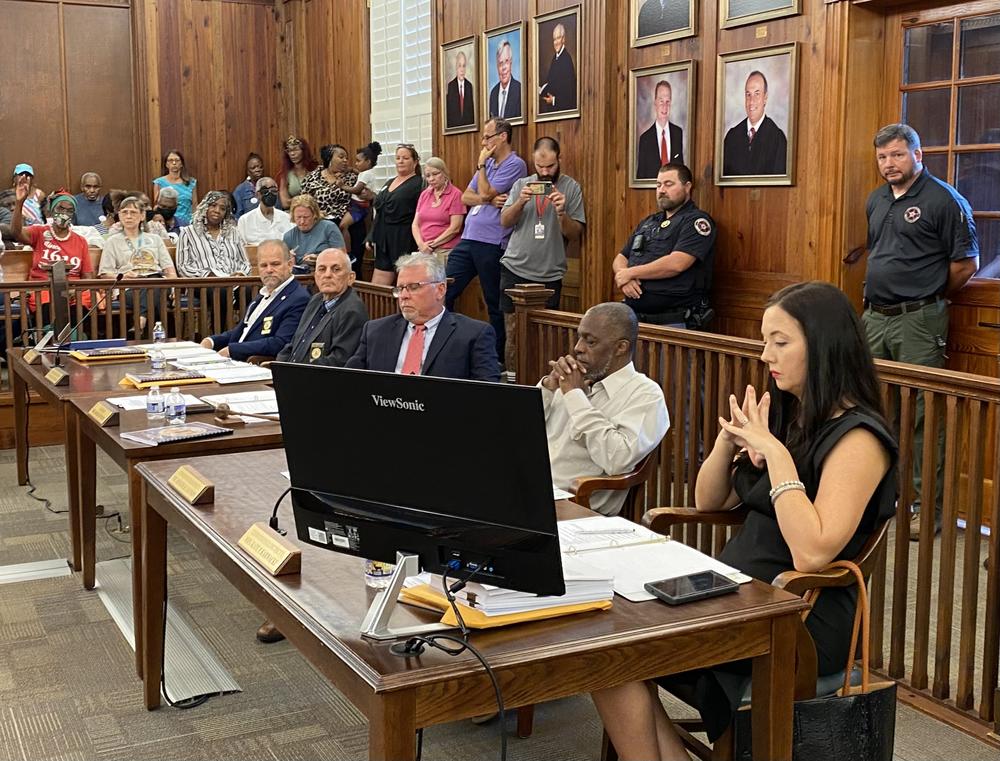
Caption
From left to right, McIntosh County Commissioners Davis Poole, William Harrell, David Stevens, Roger Lotson and Kate Karwacki sit for a board meeting at the McIntosh County Courthouse on Tuesday, Sept. 12, 2023.
Credit: Benjamin Payne / GPB News

